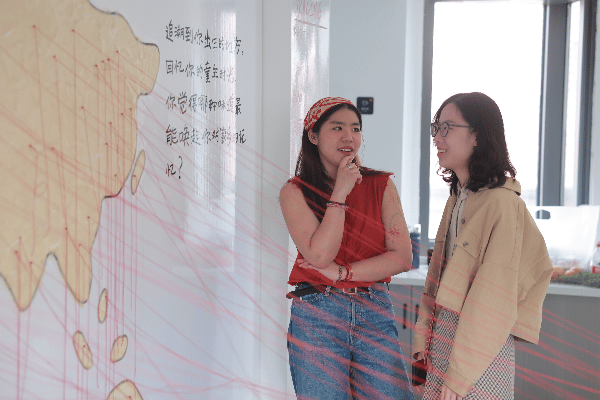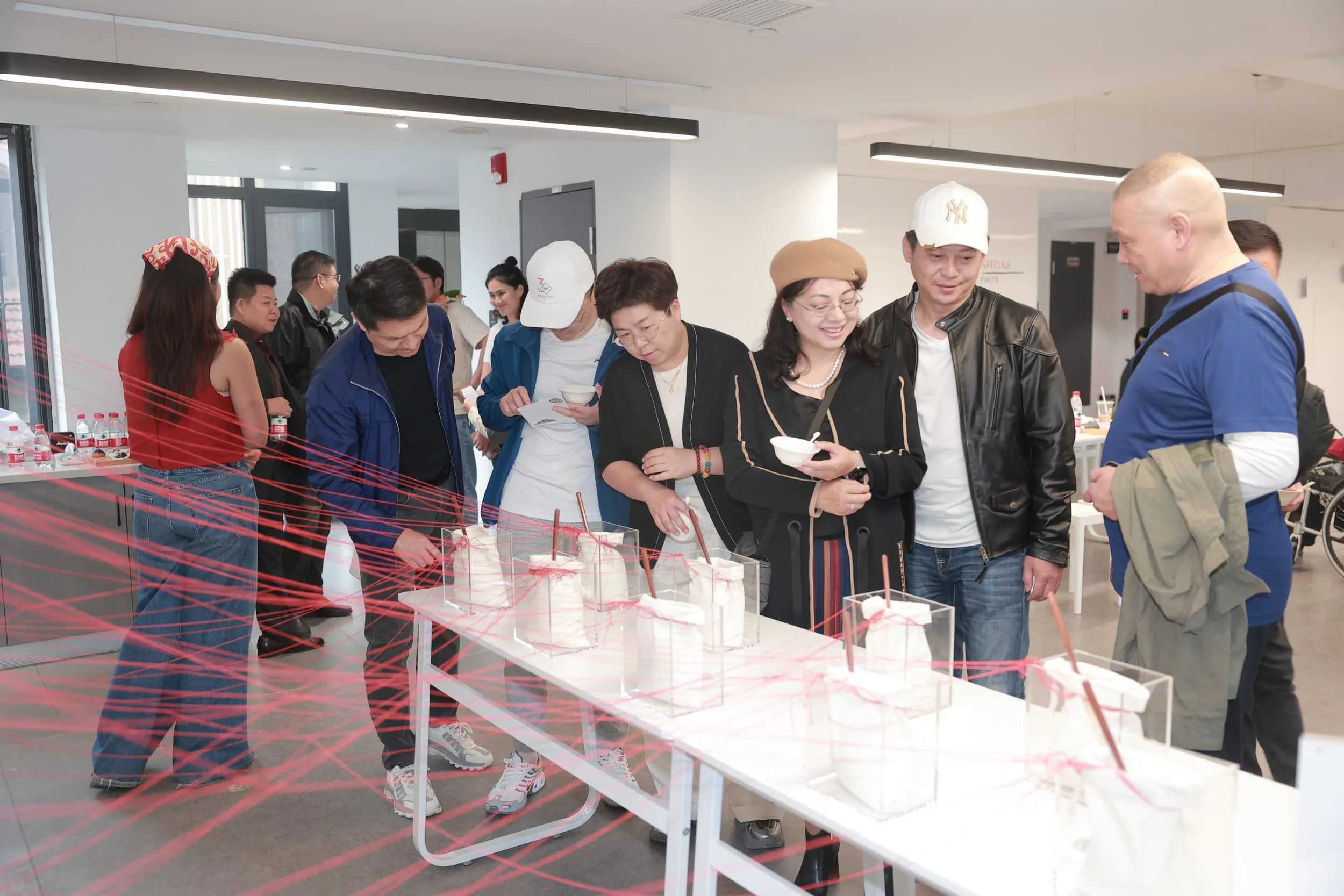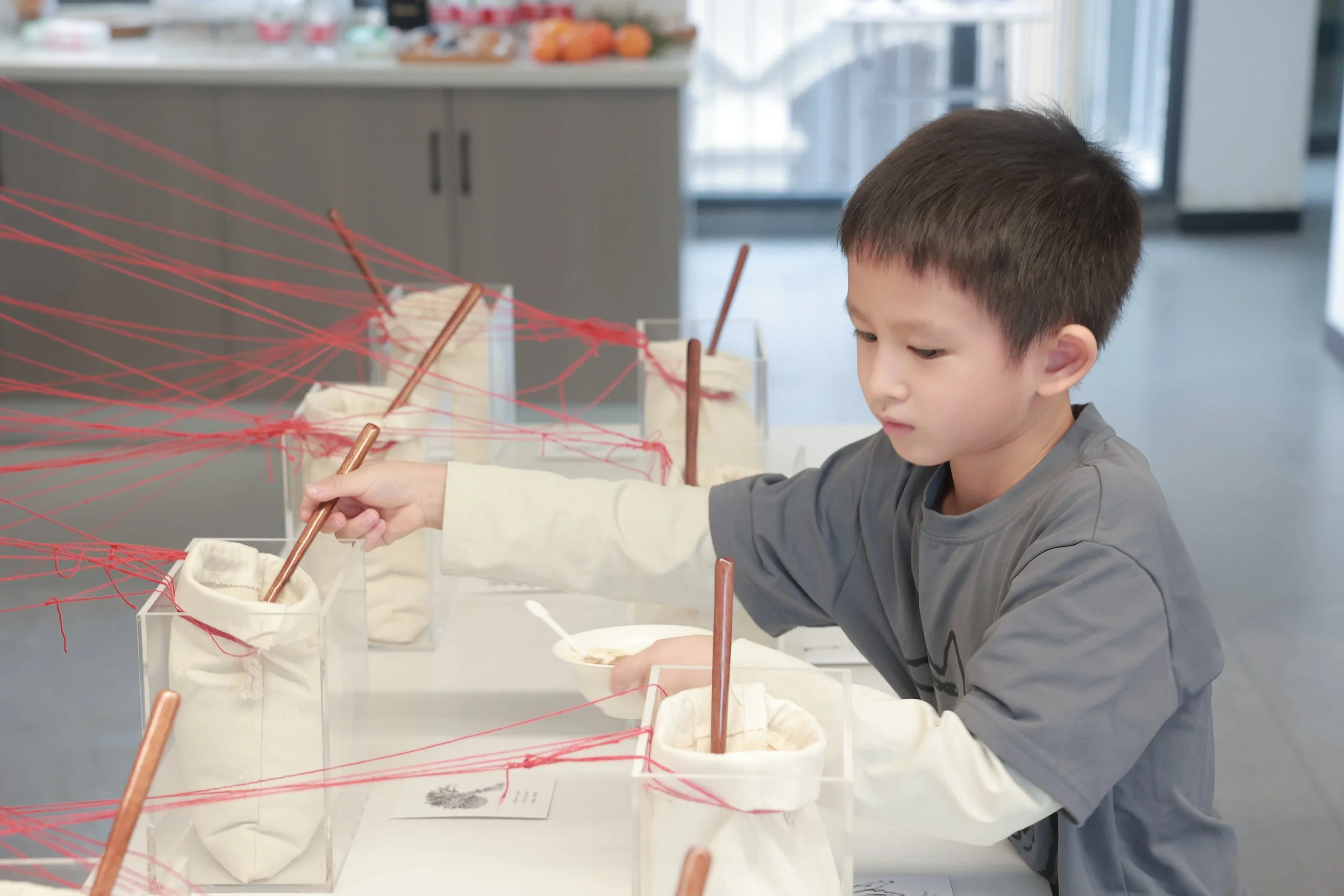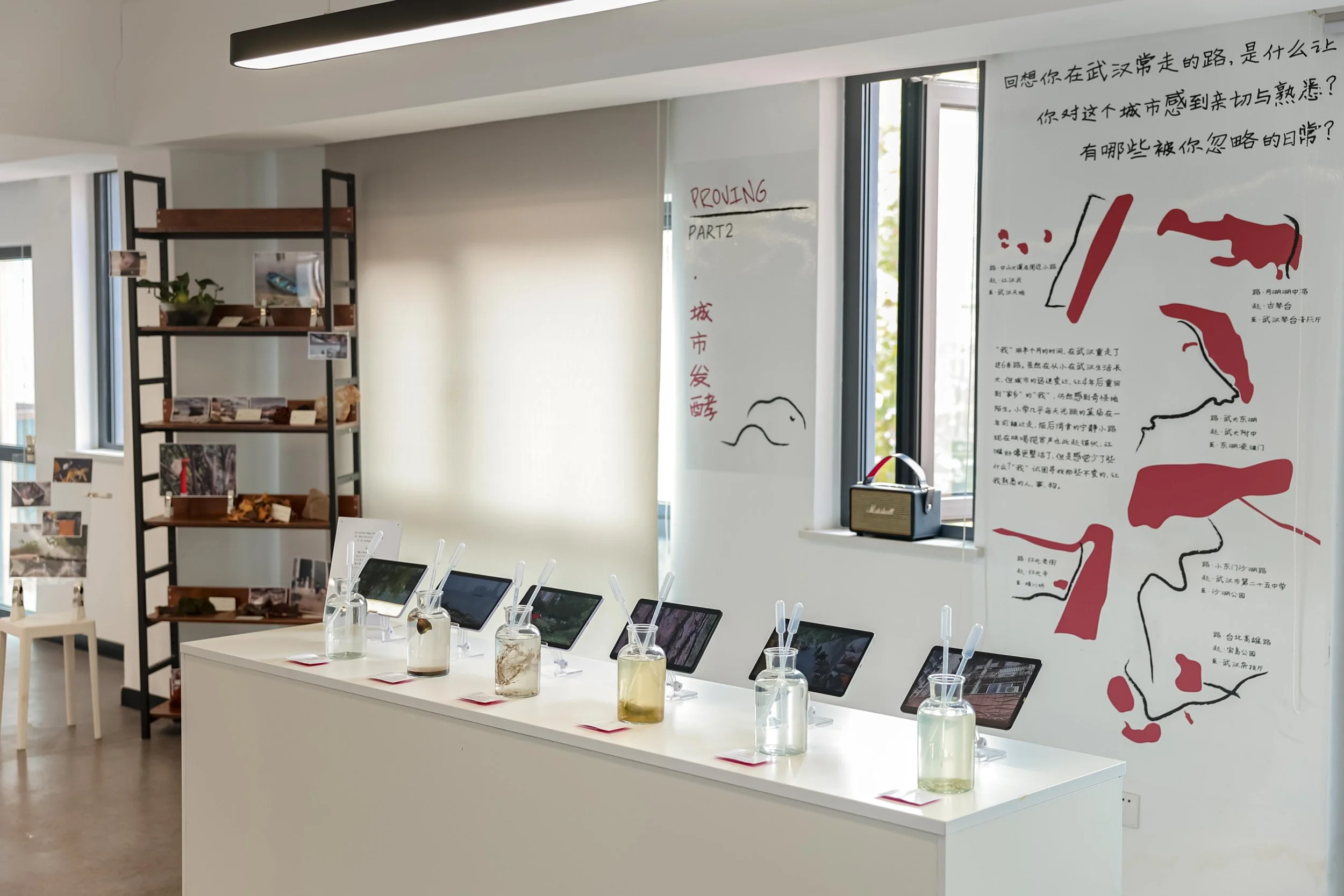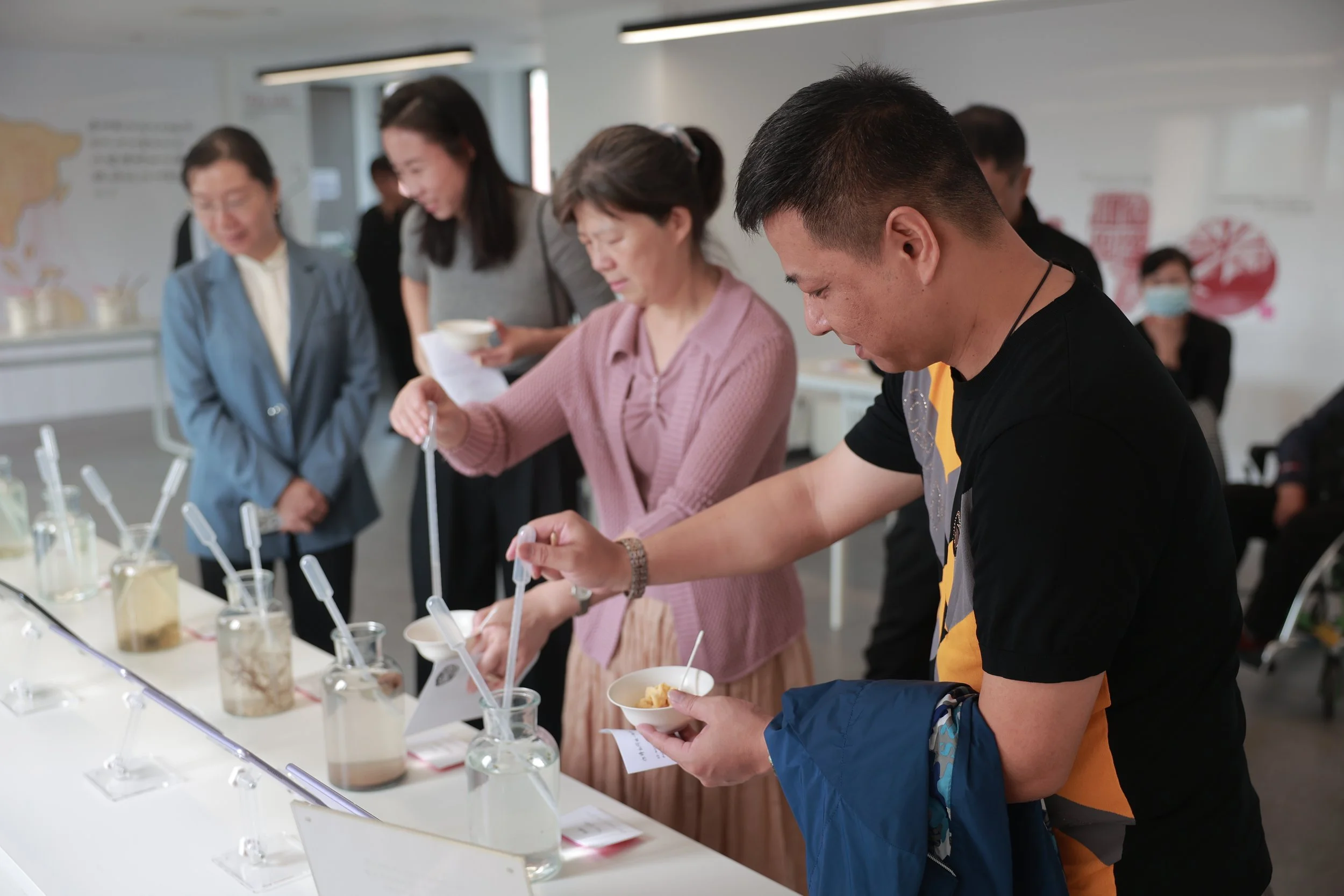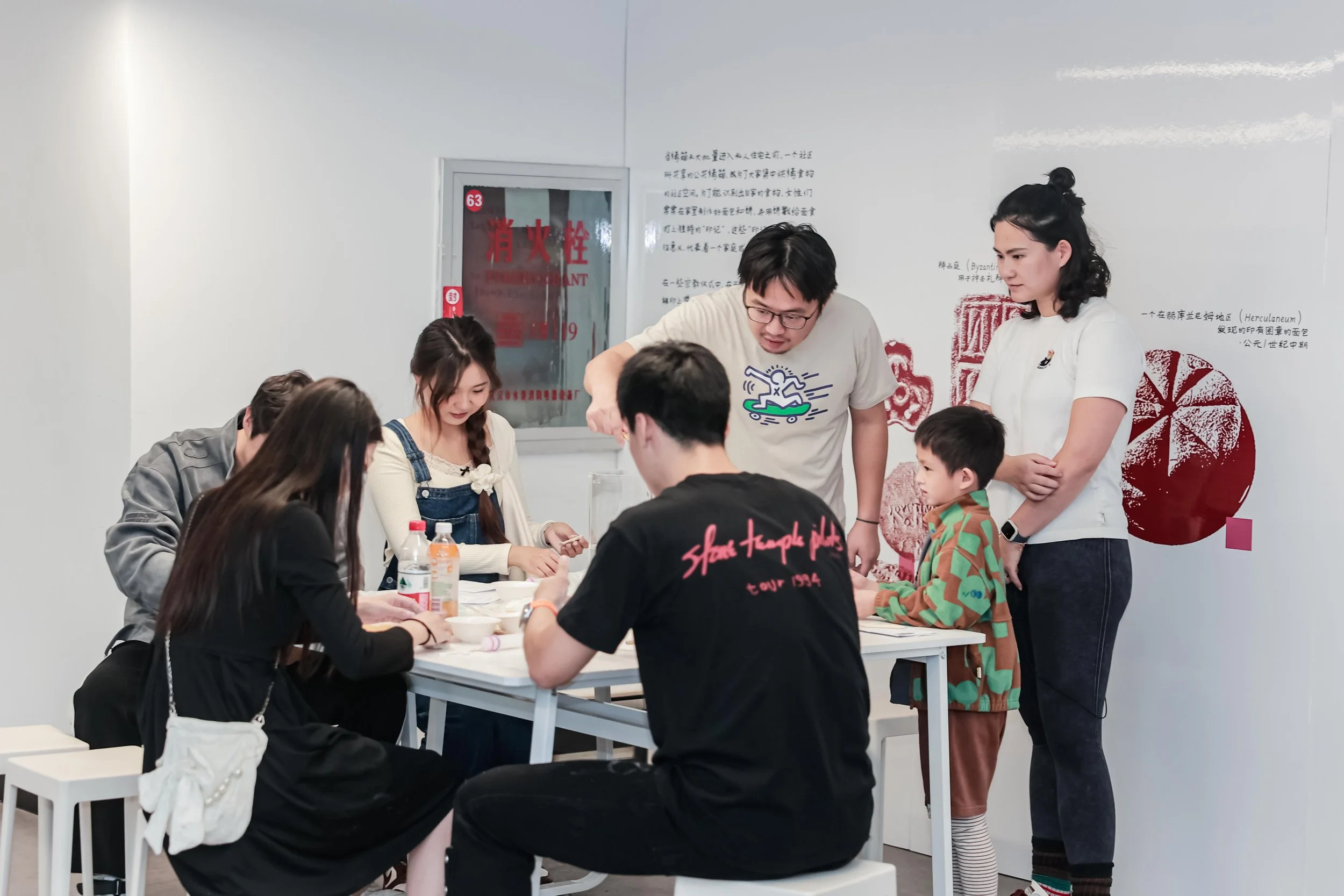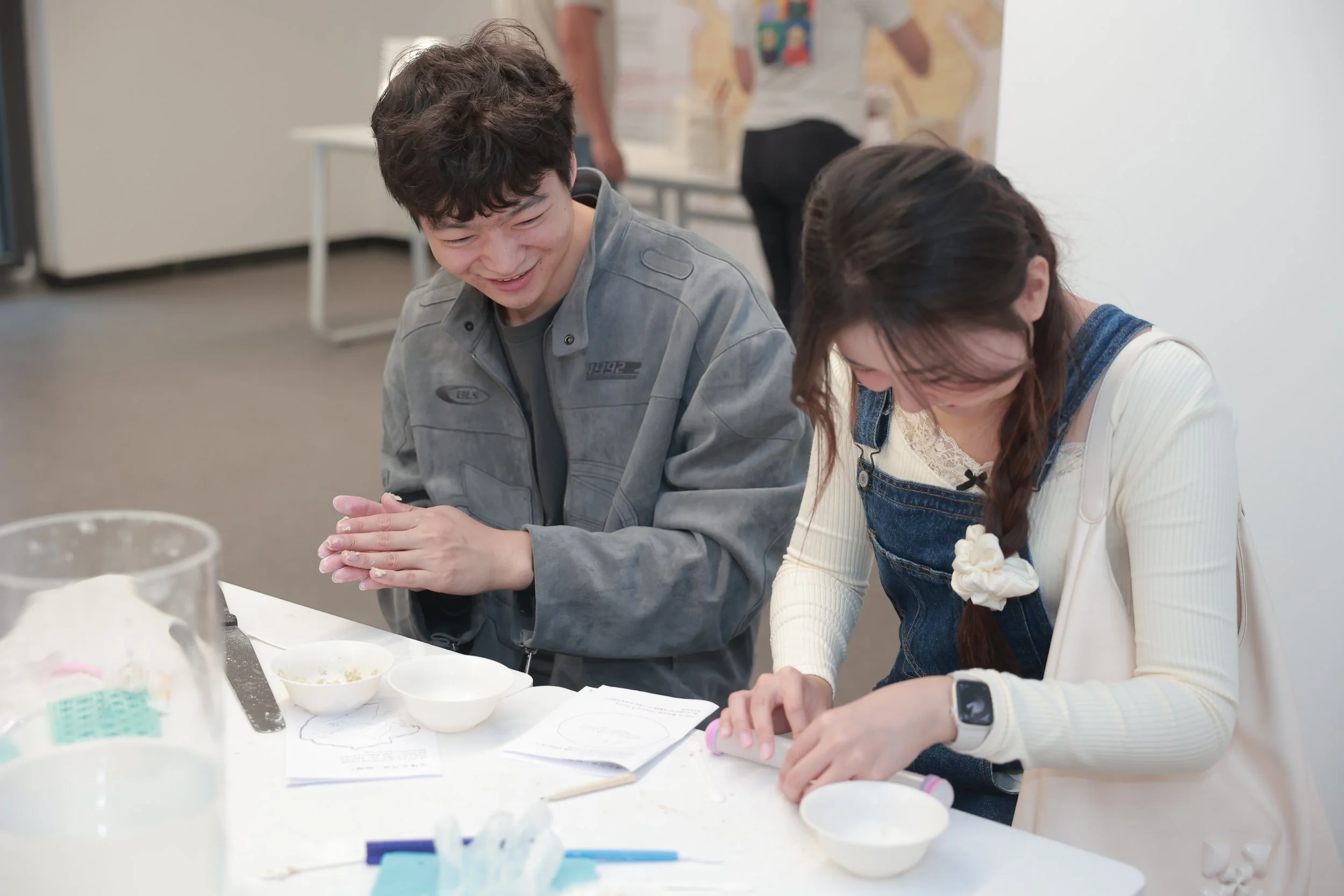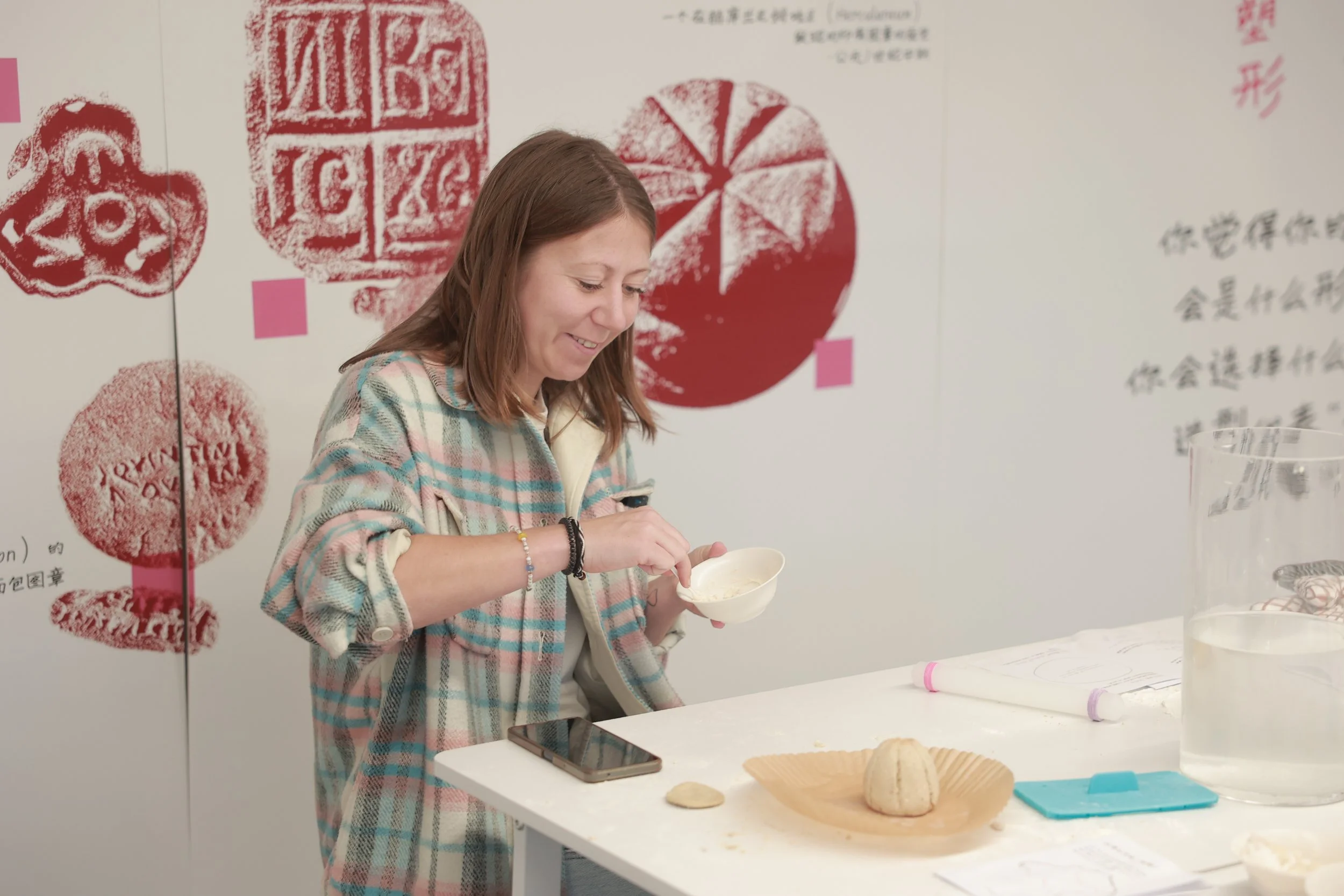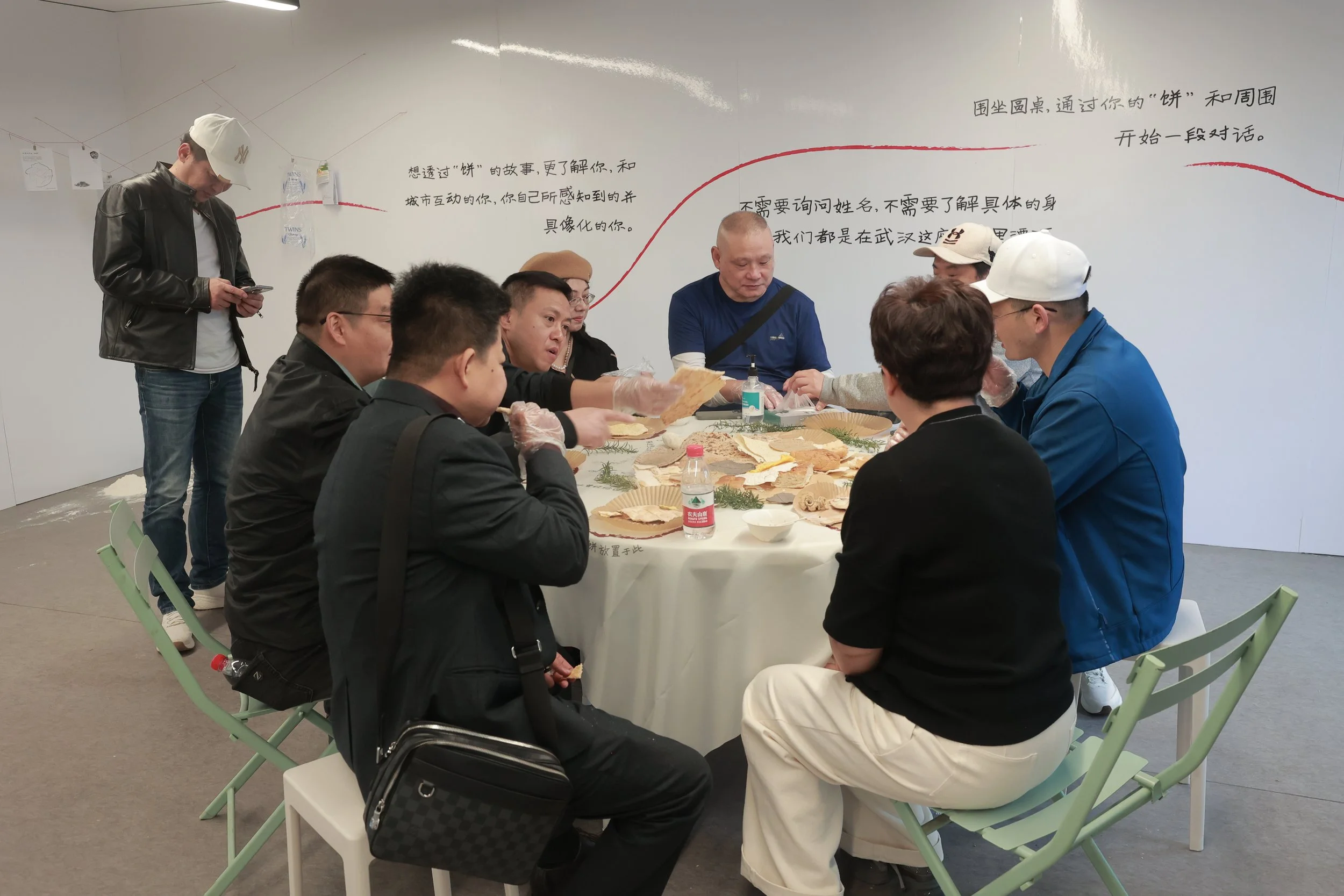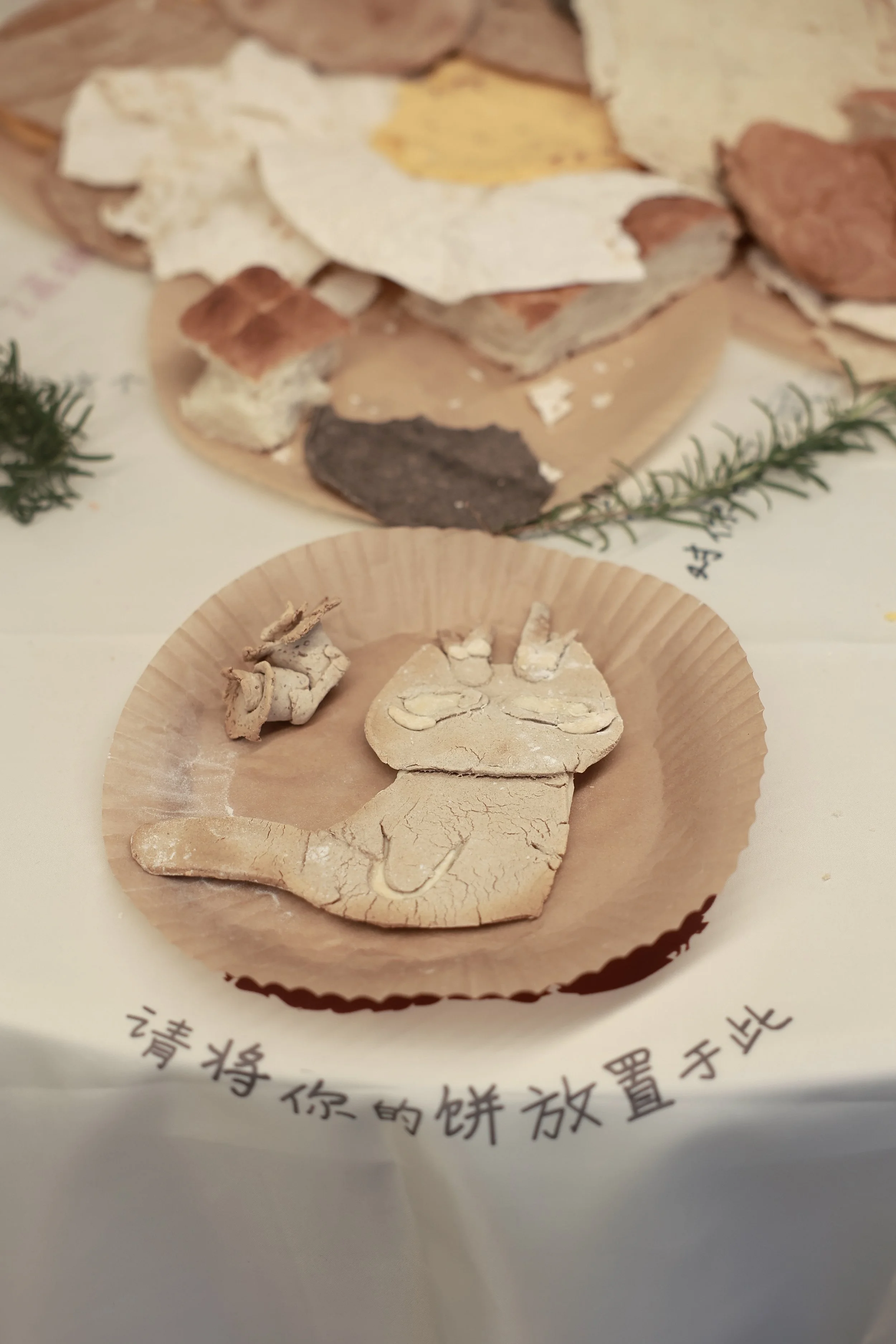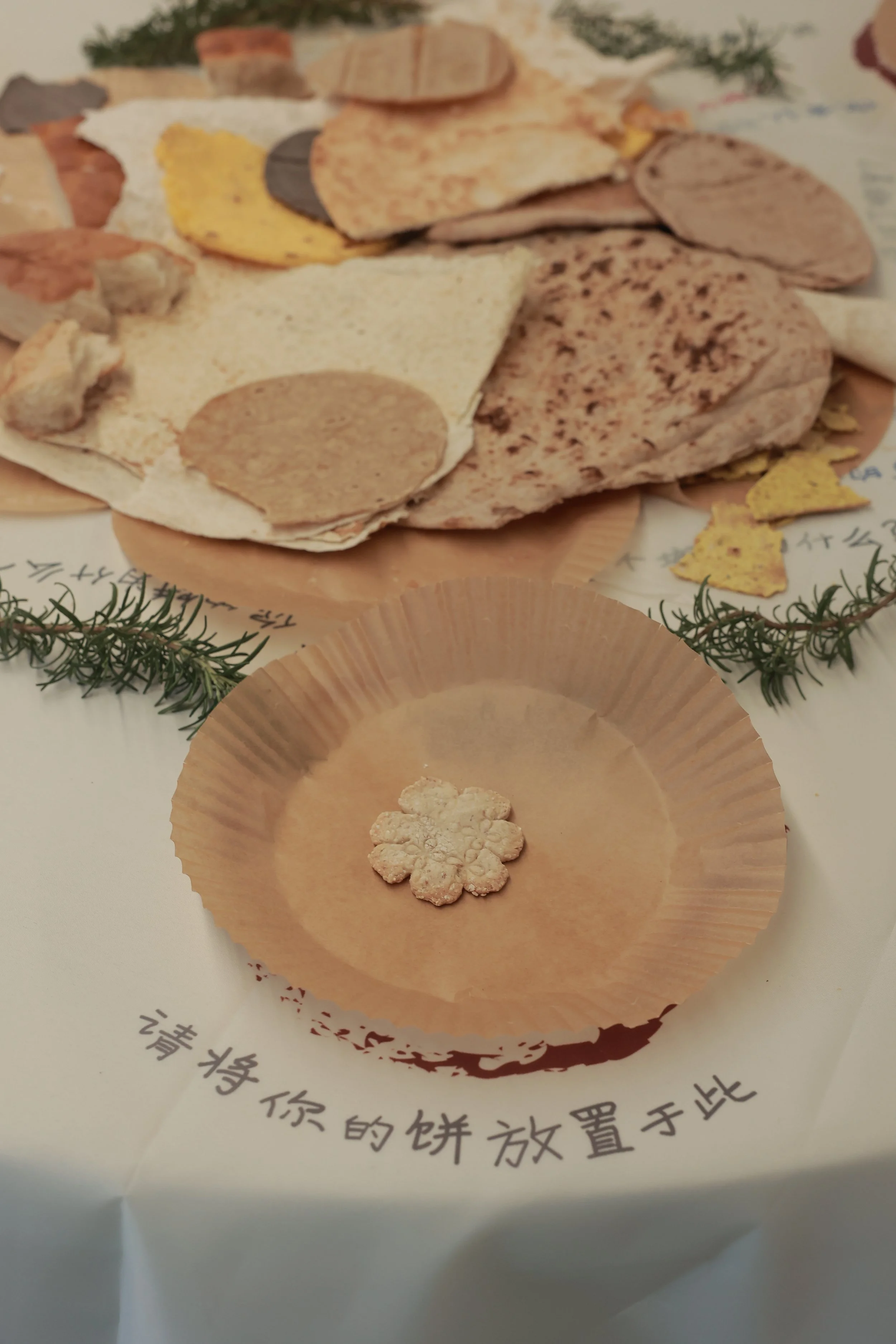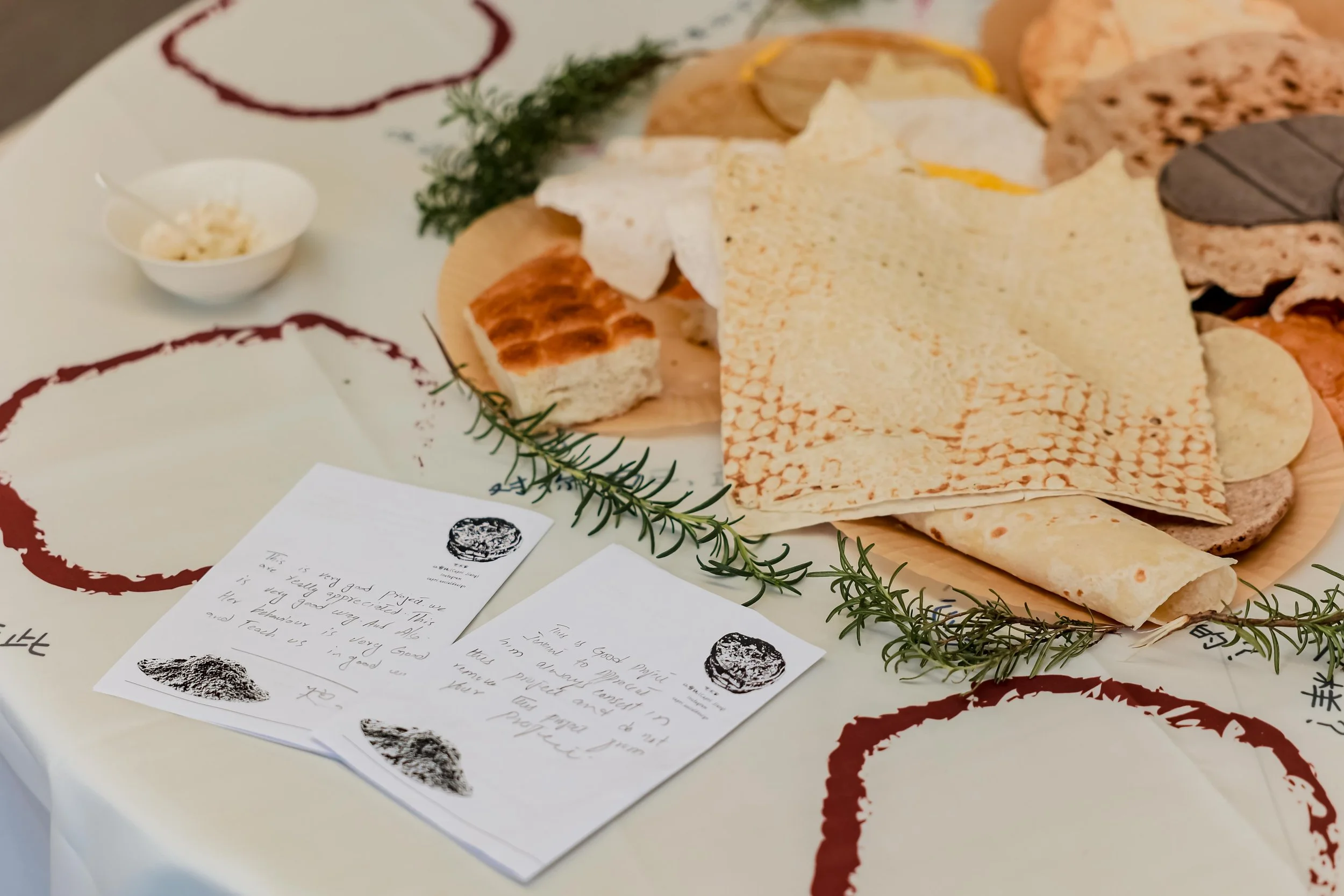Flatbread Wandering

Flatbread Wandering is a participatory exhibition that invites you to explore 'flatbread' as a 'global food' that stirs reflection on identity and belonging in Wuhan, a city that serves as a temporary home to over 3 million population. Flatbread, with its ancient roots, has wandered across borders and eras, evolving within each culture that embraces it. Its simplicity-basic ingredients, minimal tools, and versatility-makes it a canvas, infused with symbols of unity, breaking down barriers, and the act of sharing.
In this exhibition, participants are invited to craft a 'flatbread' imbued with their unique identity through 'Tracing’, 'Urban Proving’, 'Shaping’ and ‘Sharing’. As we gather around the table, breaking flatbreads and sharing the stories behind them, invisible threads begin to intertwine, linking you to those beside you.

Story Behind
The story begins with the experience of cooking and sharing food in a migrant kitchen, a collaborative program between Care4Calais and Granville Community Kitchen.
The community kitchen is open to anyone whether they live nearby or are simply passing through. Every Wednesday, people from diverse cultural backgrounds gather here to share their home-cooked meals. Many don't speak or understand English well, yet this language barrier doesn't prevent meaningful connections. As a Chinese proverb says,「话不多说,都在酒里」—Words are few, but everything is in the wine. In the same way, food becomes a powerful medium, carrying emotions and stories that connect everyone through the shared experience of cooking and eating.
Over the past two years at the kitchen, I noticed that flatbread, in its many forms, became the staple food that people from different backgrounds naturally gravitated toward. A simple piece of flatbread carries more than just flavour. It reflects each cook’s cultural preferences, shaped by their choice of ingredients. More than that, it holds traces of their past, revealing how their environment and way of life have influenced the way they cook and eat.
Reflecting on your relationship with the city through food-making
The experience consists of four parts:
# Tracing (溯源)
# Urban Proving (城市发酵)
# Shaping (塑形)
# Sharing (圆桌话‘饼’)
Part 1 | Tracing (溯源)
People are invited to select and scoop different types of flour from the mapping installation—choosing those they feel most familiar with or connected to from their childhood—and add them to a small bowl.
Part 2 | Urban Proving (城市发酵)
Wuhan is a city with an extensive water system, and water is one of the key elements that connect the city. I retraced the six routes I walked most frequently during the first 20 years of my life in Wuhan, collecting water along the way and documenting the process through video.
In the exhibition, both the collected water and the video diary are presented. Participants are invited to recall their own walking memories in Wuhan and add the water they feel most connected to into a bowl of flour.
Part 3 | Shaping (塑形)
In the past, private ovens were not common in households, and communal ovens or bakeries served as shared spaces for baking in many cultures. To distinguish their food, people used unique bread stamps marked with symbolic patterns representing their family. Inspired by this historical tradition, participants in this stage are invited to create bread with distinctive shapes and patterns that reflect their own identity.
Part 4 | Sharing (围桌‘话’饼)
Finally, participants are invited to gather around a circular table with the baked flatbread, sharing food and engaging in conversations about their reflections on the flatbread-making process and how they perceive their relationship with the city of Wuhan.

“Food is more than sustenance; it is a language, spoken through ingredients, textures, and flavours across many cultures. The preparation of food weaves together physical and emotional labour transforming simple materials into something rich with meaning. In this transformation, food becomes a vessel, carrying stories, histories, and silent messages- a form of nonverbal communication. To share a meal is to partake in a ritual of cultural and personal exchange.”
